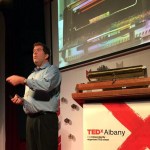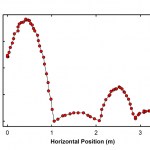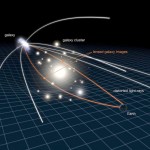education
For public health workers, it’s no surprise that social, economic and political conditions shape the distribution and burden of disease. They’ve always known that it takes much more than medicine to keep people healthy. Still, when public health scientist Kristina Talbert-Slagle decided to study the impact of social and public health spending on HIV/AIDS, she wasn’t sure what she’d uncover.
“We thought that maybe there would be a connection, but we didn’t really know what to expect,” said Talbert-Slagle, a senior scientific officer at the Yale Global Health Leadership Institute and a lecturer…
Over at Scientific American, Amanda Baker has a story about what scientists say they would tell their younger selves.
I reached out to eight of my colleagues who are currently in STEM fields and asked them a series of questions about their childhood interests in science, school experiences, and roadblocks that they faced on their path from elementary school to their current positions. [...]
Their feedback covered not only what drew them to science, but also what had almost pushed them away. Below I have consolidated the feedback into five main points, including the advice they would give…
Think about all the objects you use every day that are made with pieces of metal. Before that object got to you, a worker in the metal manufacturing industry used a machine to cut, saw, bend and assemble the metal pieces into the countless products that make our lives easier. But sometimes those machines break. And when they do, a simple and inexpensive procedure helps ensure both worker and machine can return safely to the job.
The procedure is known as lockout/tagout (LOTO) and it’s used to disable machinery and prevent the release of hazardous energy during servicing and repair. In other…
During the holiday season, Kim, Liz and I are taking a short break from blogging. We are posting some of our favorite posts from the past year. Here’s one of them, originally posted on June 26, 2015:
By Kim Krisberg
A common hurdle in the field of occupational health and safety is delivering what can sometimes be life-saving information to the people who need it most. After all, not all employers are amenable to workplace health and safety education. But what if safety advocates could find and connect with the most at-risk workers out in the community? Perhaps even reach vulnerable workers…
During the holiday season, Kim, Liz and I are taking a short break from blogging. We are posting some of our favorite posts from the past year. Here’s one of them which was originally posted on May 26, 2015:
by Kim Krisberg
After 18 years as a professional house cleaner in the suburbs of Chicago, Magdalena Zylinska says she feels very lucky. Unlike many of her fellow domestic workers, she hasn’t sustained any serious injuries.
Zylinska, 43, cleans residences in the metropolitan Chicago area five days a week. An independent contractor, she cleans two to three houses each day. Fortunately, she…
So, yesterday was my big TEDxAlbany talk. I was the first speaker scheduled, probably because I gave them the title "The Exotic Physics of an Ordinary Morning," so it seemed appropriate to have me talking while people were still eating breakfast...
The abstract I wrote when I did the proposal mentions both quantum physics and relativity, but when I actually wrote the talk, that made for a really awkward transition, so it's all quantum, all the time. I cover quite a bit of ground-- the no-animation-effects version of the slides is 42 slides and Word has it as just over 2500 words written out…
It’s not surprising that food insecurity has a negative health and academic impact on young children — numerous studies have come to that conclusion. However, a new study has begun to dig a little deeper into the topic, zeroing in on the lingering aftermath of the Great Recession, when food insecurity and child poverty reached record levels, and examining the particular effects of transitioning from not worrying about having enough food to living in a household with limited or uncertain access to food.
Published this month in Health Affairs, the study looked at transitions in food security…
I followed up my ranty-y post about "Sports Science" with an experimental investigation over at Forbes, tossing a football around on the deck out back and then doing video analysis of the bounces. This provided a wealth of data, much of it not really appropriate for over there, but good for a physics post or two here.
One of the trajectories I looked at was this "forward bounce":
Here's the trajectory reconstructed in Tracker:
Trajectory of a football bouncing forward.
This is notable because not only does it bounce forward, it includes one of those big pop-up bounces that take people off…
I got off on a bit of a rant the other day about bad defenses of "the humanities," but there's a bright side. It finally got me to write my own, over at Forbes, which is basically the last piece of a tetralogy of advice for students:
-- Why small colleges are a great place for students majoring in STEM subjects
-- What students planning to major in STEM subjects should make sure to do in college
-- Why non-STEM majors should nevertheless take science classes in college
-- Why STEM majors should take "humanities" classes, and take them seriously
That last one, posted yesterday, is my attempt…
My library is hosting a Ada Lovelace Day event tomorrow (ok, a little late...). Continuing in a tradition of having Women in Science Wikipedia Edit-a-thons, we're hosting our own Wikipedia Women in Science Edit-a-thon!
I've been doing a fair bit of reading over the last couple of years about Wikipedia culture and especially how it relates to the under-representation of women both as editors and as subjects of articles. So I thought I'd share some of my readings here with all of you.
Of course, this list is in no way comprehensive or complete. I welcome suggestions for further readings in the…
Somebody in my social media feeds passed along a link to this interview with Berkeley professor Daniel Boyarin about "the humanities," at NPR's science-y blog. This is, of course, relevant to my interests, but sadly, but while it's a short piece, it contains a lot to hate.
For one thing, after the dismissive one-two of "so-called 'scientific methods'" (Scare quotes! "So-called"! Two great tastes that taste great together!) in the process of trying to re-brand "the humanities" as "the human sciences," Boyarin offers the following on methodology:
The primary method for the study of humans…
Americans with lower incomes and educational attainment often live shorter, sicker lives than their wealthier, more educated counterparts. Contributors to these disparities can include access to care, hazardous living conditions, nutrition in early childhood, and personal behaviors. But what about workplace conditions? Do certain groups of people get sorted into jobs that exacerbate inequalities in life expectancy?
That’s the question a study published in this month’s issue of Health Affairs confronted. The researchers noted that while previous research shows that a “variety of working…
Anyone who’s lived in a big, dense city is familiar with the sight of bicycle messengers weaving their way in between metro buses and taxi cabs, down side streets and around packed crosswalks, pedaling at impressive speeds and often with remarkable agility. Surprisingly, however, there’s little data on these workers, even though it seems they’d be particularly susceptible to injuries on the job.
To fill in that knowledge gap, a group of researchers from New York University School of Medicine and Bellevue Hospital Center decided to take a deeper look. Hypothesizing that those commercial…
“Drawing is not only a way to come up with pictures: drawing is a way to educate your eye to understand visual information, organizing it into a more hierarchical way, a more economical way. When you see something, if you draw often and frequently, you examine a room very differently.” -Vik Muniz
If you've ever wired something up yourself and successfully hit that switch for the first time, you know what that sense of magic feels like. Have a listen to Forest City Lovers as they sing about that same feeling in a different context,
Light You Up,
while you consider how maddening circuit…
“The scientist does not study nature because it is useful; he studies it because he delights in it, and he delights in it because it is beautiful.” -Henri Poincare
It's the start of another school year, and that means literally tens of millions of students returning to school. While there are a few of them genuinely looking forward to each and every one of the challenges that the upcoming year has to offer, the vast majority are excited about a handful of subjects at most, with a great many actually dreading the upcoming year.
Image credit: jamtoons, via iStockPhoto and Getty Images, at http…
“One life is all we have and we live it as we believe in living it. But to sacrifice what you are and to live without belief, that is a fate more terrible than dying.” –Joan of Arc
In 2012, I had the honor and the privilege to learn about Mariam Sultana, the first woman in Pakistan to be awarded a Ph.D. degree in astrophysics. Thanks to the wonders of the internet, I was able to contact her and obtain permission for an exclusive interview, for which I solicited questions for her from all over the globe.
Image credit: The Express Tribune with the International Herald Tribune, http://tribune.…
Slate's been doing a series about college classes everyone should take, and one of the most heavily promoted of these has been a piece by Dan Check urging students to take something they're terrible at. This is built around an amusing anecdote about an acting class he took back in the day, but as much as this appeals to my liberal-arts-school background, I think it has some serious problems, which are pretty clearly displayed early on:
At four-year colleges, there is enough time and space to do something much more interesting: take at least one course in a subject in which you are untalented…
Sociologist Jennifer Laird was researching unemployment among Mexican immigrants when she came upon some interesting numbers on black workers in the public sector and employment effects of the Great Recession. It piqued her interest and so she decided to keep digging.
She found that while public sector employment had long served as a source of stable employment among black Americans, often enabling mobility into the middle class, downsizing during the Great Recession disproportionately hurt black workers and resulted in greater racial disparities in the public sector. Specifically, Laird, a…
“When I say, ‘I love you,’ it’s not because I want you or because I can’t have you. It has nothing to do with me. I love what you are, what you do, how you try. I’ve seen your kindness and your strength. I’ve seen the best and the worst of you. And I understand with perfect clarity exactly what you are.” –Joss Whedon
When you first venture out into the world, you're armed, as a human being, with an incredible intelligence, but with no experience. All sorts of basic things must be learned, often the hard way: hot things will burn you, hot things that don't look hot will also burn you, and that…
A couple of articles came across my feeds in the last day or two that highlight the truly important cultural divide in academia. Not the gap between sciences and "humanities," but the much greater divide between faculty and administration. This morning, we have an Inside Higher Ed essay from Kellie Bean on the experience of moving into administration:
When I moved into administration after being a professor, a colleague who had made the same move years before told me to brace for the loss of my faculty friends.
Impossible, I argued -- we attended regular Friday cocktail hours, had fought and…





